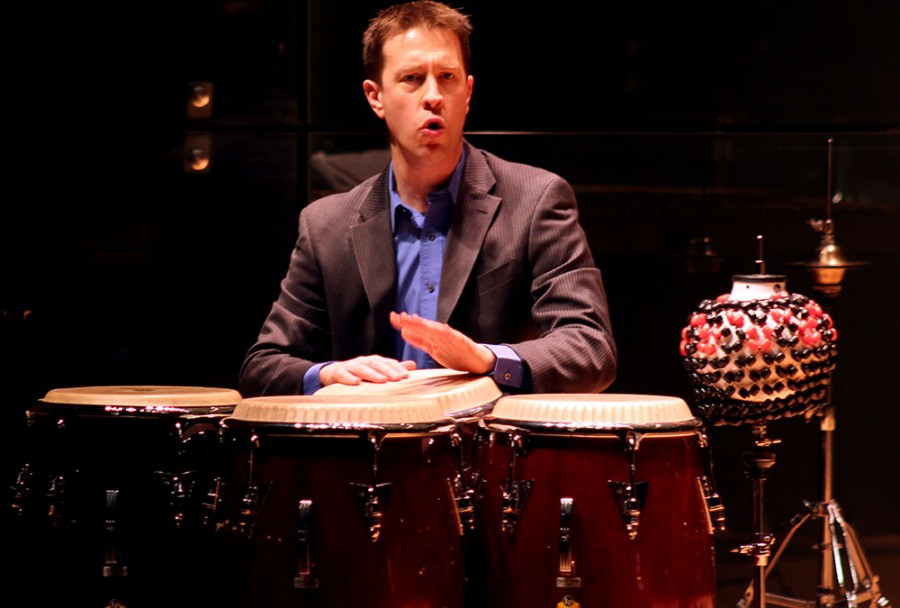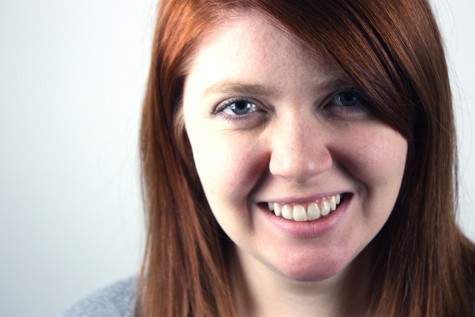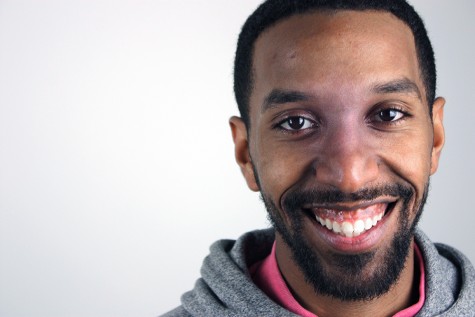Afro-Cuban hymns, jazz played by faculty
Jamie Ryan, an assistant professor in the music department, plays a percussion instrument in the Faculty Recital Series in the Doudna Fine Arts Center Saturday in the Recital Hall. Ryan performed several solo pieces of work and duo.
February 22, 2015
From traditional Afro-Cuban hymns to medieval melodies, music spanning centuries was presented during the R&R Percussion/Trombone Duo Saturday in the Recital Hall of the Doudna Fine Arts Center.
The duet was part of the music department’s Faculty Recital Series. Assistant professors Jamie Ryan and Jemmie Robertson played percussion and trombone, respectively.
Robertson said the music for percussion and trombone can vary.
“We wanted to feature different colors of sound,” he said.
While introducing the fourth piece of the recital, titled “Stereogram No. 11- Miami,” Ryan said he wanted to give an accurate feel of the piece’s American-Cuban salsa tones.
“This is to sound like a two-person salsa, we hope,” he said.
Despite only having two members to perform, Ryan could be often found bouncing around from one percussion instrument to the next, making it seem as though more musicians were present.
Robertson said the term “stereogram” stated in the title gave the piece layers of sound and different registers.
“Stereogram No. 11-Miami” differed greatly from the compilation of three pieces titled “Three Medieval Dances.”
Audience members were able to experience sounds dating back to the 1400s.
Ryan’s percussion included instruments attached to the foot, and a tambourine.
To continue, each musician played a solo piece.
Ryan said before his solo, Robertson deserved a rest.
“It’s time to give those lips a break,” he said.
Ryan played and sang a diverse solo, sourced from traditional Afro-Cuban styles, titled “Orishas.”
“Orishas” is derived from Cuba, as a form of religious music, which Ryan arranged as a solo.
He sang hymns while playing two different forms of percussion.
In the beginning of the piece, Ryan’s voice was clear, echoing the walls of the Recital Hall; as the piece continued, Ryan’s voice became subdued, as his work on the congas took over.
Ryan said he is very familiar with this style of music, working with the genre for multiple decades.
“It has been three to four decades now,” he said. “I can’t believe how long it’s been.”
Ryan co-founded “El Can Destino,” an Afro-Cuban quartet and played congas and sacred bata drums, according to his biography on Eastern’s website.
Robertson said his solo, “Etude No. 7,” was originally written for the trumpet.
“It just happens to sound better on the trombone,” he said, as members from the audience laughed.
Robertson used the solo as way to reflect on his teachings.
“When I teach, I put an emphasis on etudes, which I think students tend to avoid,” he said. “It’s important to explore expressions.”
For two of the final three pieces, Robertson and Ryan joined together to tell two different stories.
The first of the two was to express the works of Shakespeare.
The two parts in the encompassed piece crossed centuries, with the first composer, Ambroise Thomas, being of the late 1800s, and the second, Radiohead, from 1986.
“(The first piece) is to imitate Hamlet’s tortured speech,” Robertson said.
The second for the Shakespeare piece was composed for the 1996 Romeo and Juliet movie, and exemplified two lovers, Ryan said.
The final piece, “Ohio River Journal,” depicted different scenes of composer David P. Jones’ experiences on the Ohio River with a “big band jazz” flare.
Ryan said this was a piece he has been meaning to perform for a while.
“I was supposed to do this with an old friend, but never got around to it,” he said. “(Robertson) was up to the task.”
Part three of the four-part “Ohio River Journal,” called “Latent Storms,” lent to an eerie feel, much like unfavorable or dangerous weather.
Robertson said he heard about one of the pieces, “Pair Up,” from a former student after the student showed it to him on YouTube.
“We stole it from him,” he said. “Beware, students. We will ‘borrow’ your suggestions.”
Through most of the recital either Robertson or Ryan would take the lead to showcase one instrument at a time; however, “Pair Up” suited its title. Both Robertson and Ryan played with the same power simultaneously.
Robertson said he appreciated the audience and the “live experience.”
“This is a moment we all share together,” he said.
Megan Ivey can be reached at 581-2812 or at mkivey@eiu.edu.

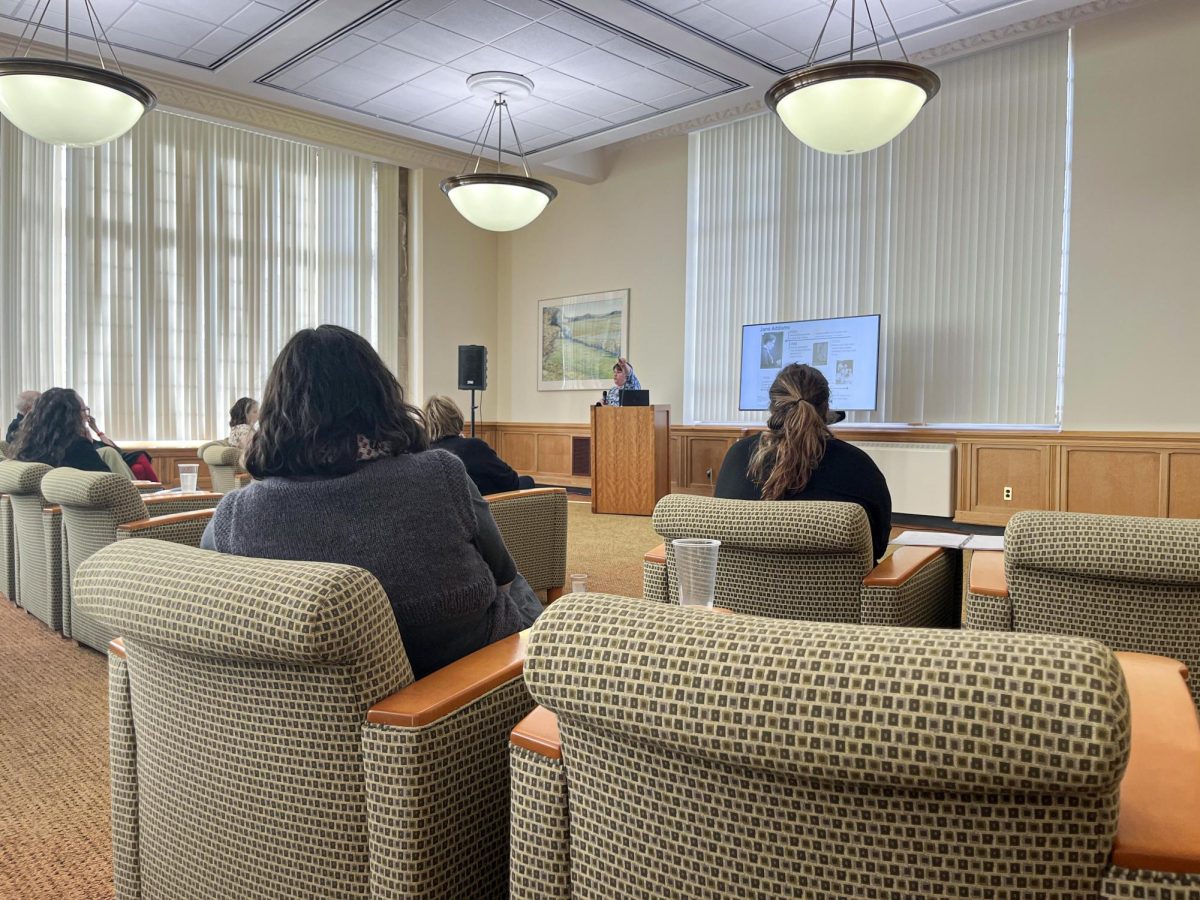


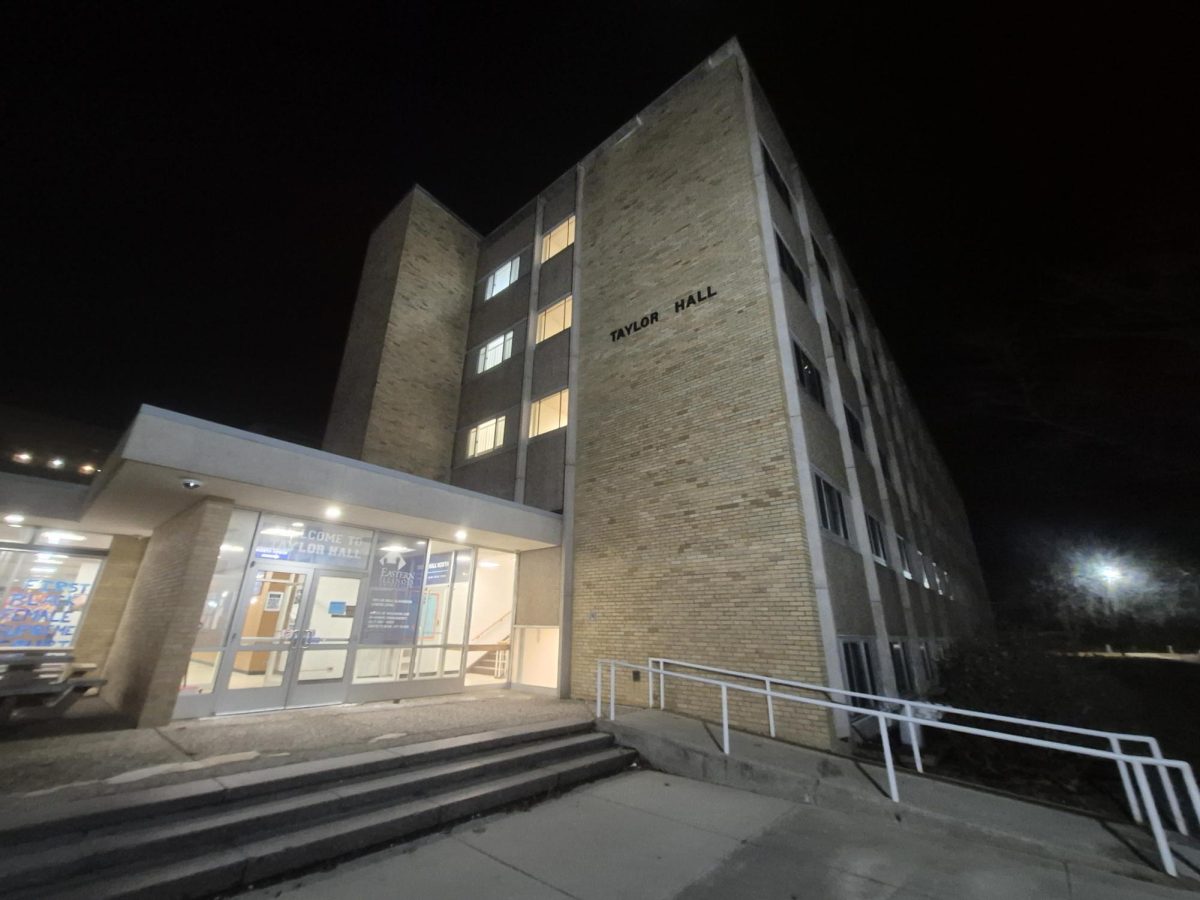
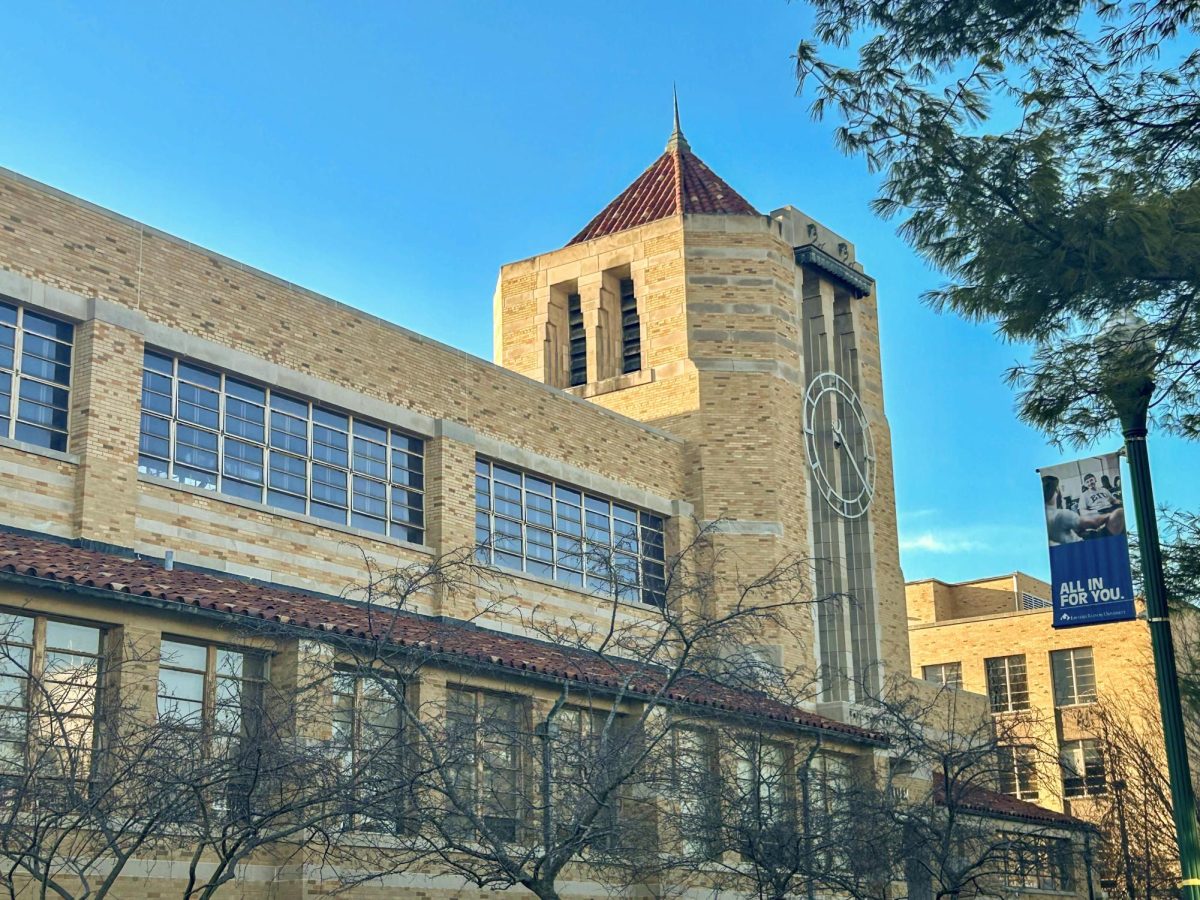
![[Thumbnail Edition] Eastern Illinois University baseball's hitting coach and recruiting coordinator Mike Pugliese urges players on the team to increase their effort after a slow start to its pregame routine at the team's first intrasquad scrimmage of the season at O'Brien Field on Jan. 31, 2025.](https://www.dailyeasternnews.com/wp-content/uploads/2025/03/BB_02_O-1-e1741909628540-1200x702.jpg)
![[Thumbnail Edition] Senior tennis player Luisa Renovales Salazar hits the tennis ball with her racket at the Darling Courts at the Eastern Illinois University campus in Charleston, ILL.](https://www.dailyeasternnews.com/wp-content/uploads/2025/03/Tennis_01_O-1-e1741807434552-1200x670.jpg)

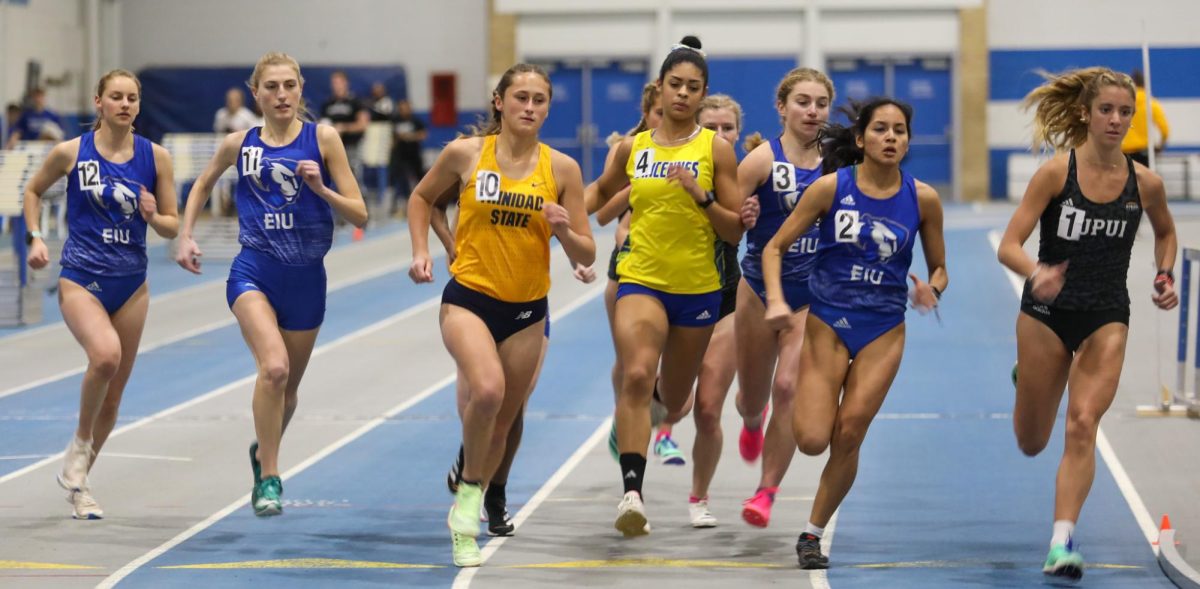
![[Thumbnail Edition] Senior right-handed pitcher Tyler Conklin pitching in the Eastern Illinois University baseball team's intrasquad scrimmage at O'Brien Field in Charleston, Illinois on Jan. 31.](https://www.dailyeasternnews.com/wp-content/uploads/2025/03/TC_01_O-e1741567955534-1200x669.jpg)

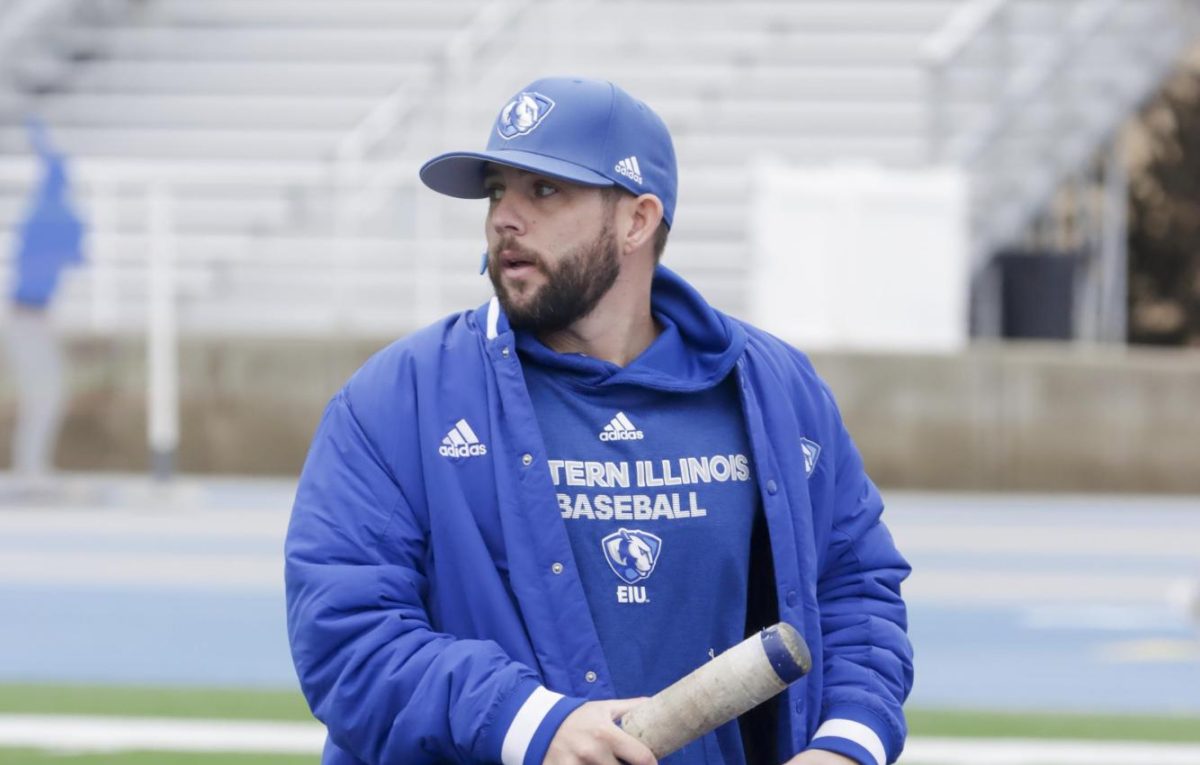
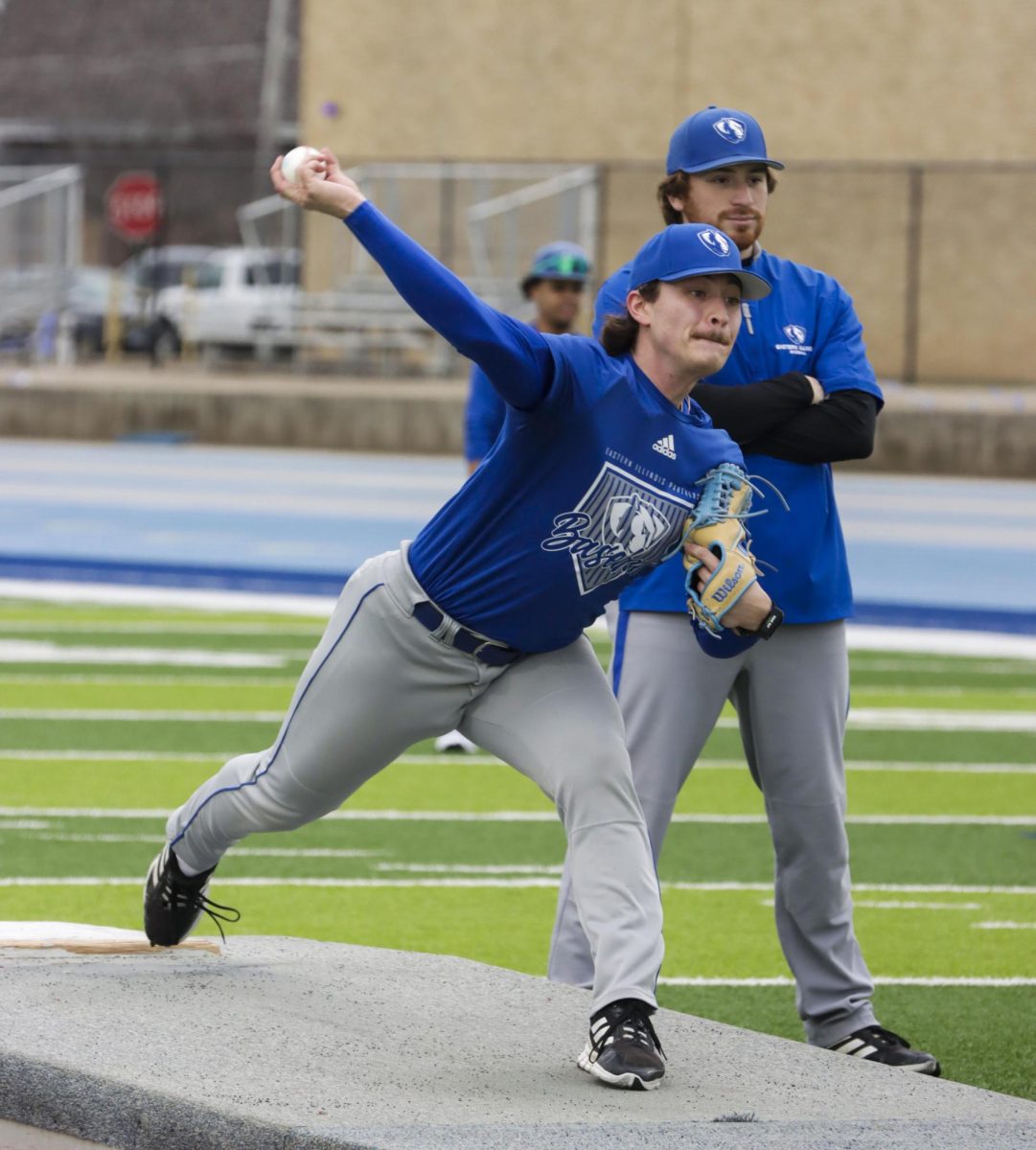


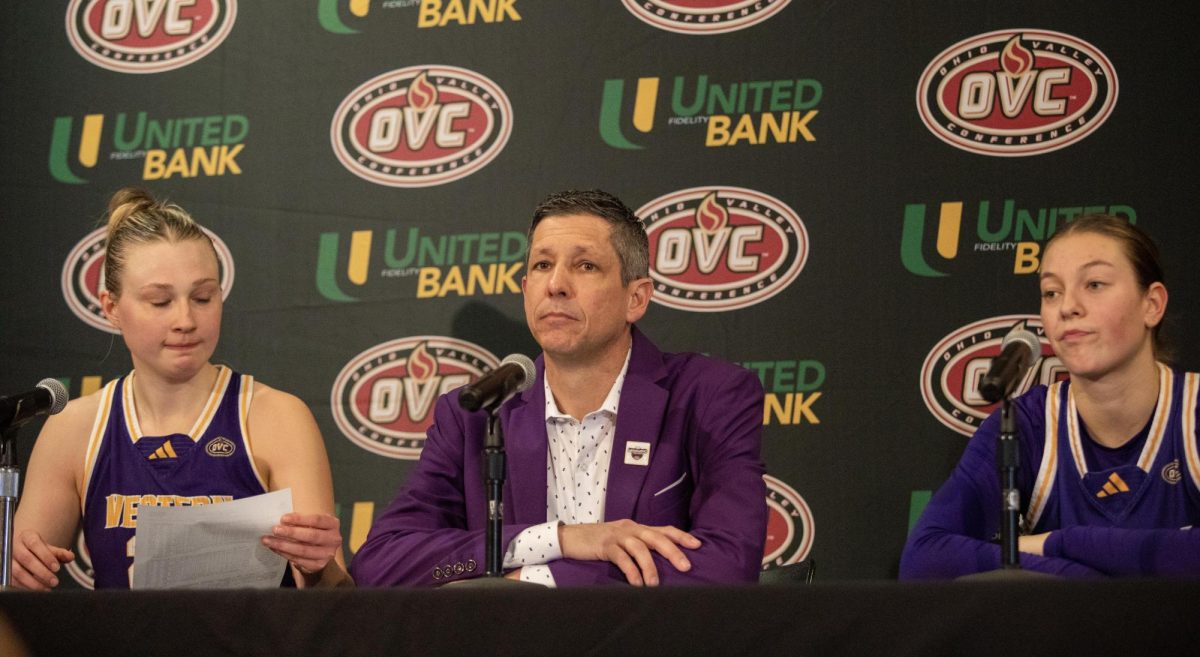
![[Thumbnail Edition] Senior, forward Macy McGlone finds an open teammate to pass the ball too during the game against the Tennessee State Tigers 69-49, in Groniger Arena on the Eastern Illinois University campus, Charleston Ill.](https://www.dailyeasternnews.com/wp-content/uploads/2025/03/WBB_02_O-1-e1741228987440-1200x692.jpg)


















![E[Thumbnail Edition] Eastern Illinois softball freshman utility player Abbi Hatton deciding to throw the softball to home plate in a fielding drill during softball practice at the field house in Groniger arena on Tuesday Feb. 11.](https://www.dailyeasternnews.com/wp-content/uploads/2025/03/SB_03_O-e1741208880750-1-e1741209739187-1200x815.jpg)

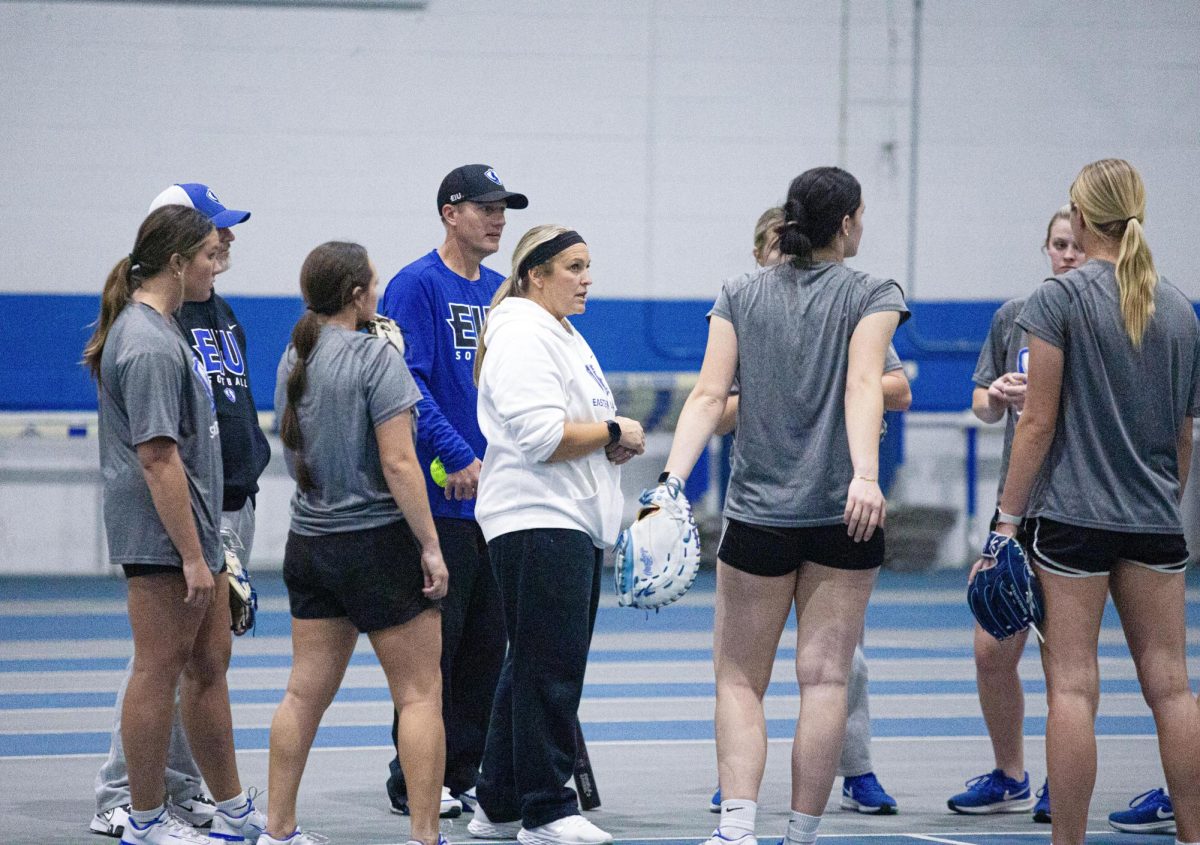
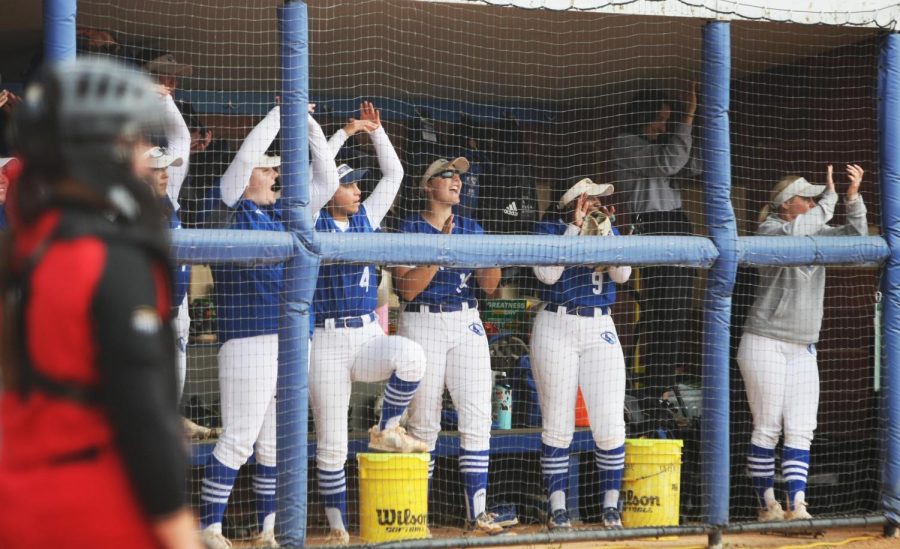













![The Weeklings lead guitarist John Merjave [Left] and guitarist Bob Burger [Right] perform "I Am the Walrus" at The Weeklings Beatles Bash concert in the Dvorak Concert Hall on Saturday.](https://www.dailyeasternnews.com/wp-content/uploads/2025/03/WL_01_O-1200x900.jpg)
![The team listens as its captain Patience Cox [Number 25] lectures to them about what's appropriate to talk about through practice during "The Wolves" on Thursday, March 6, in the Black Box Theatre in the Doudna Fine Arts Center in Charleston, Ill.](https://www.dailyeasternnews.com/wp-content/uploads/2025/03/WolvesPre-12-1200x800.jpg)
















